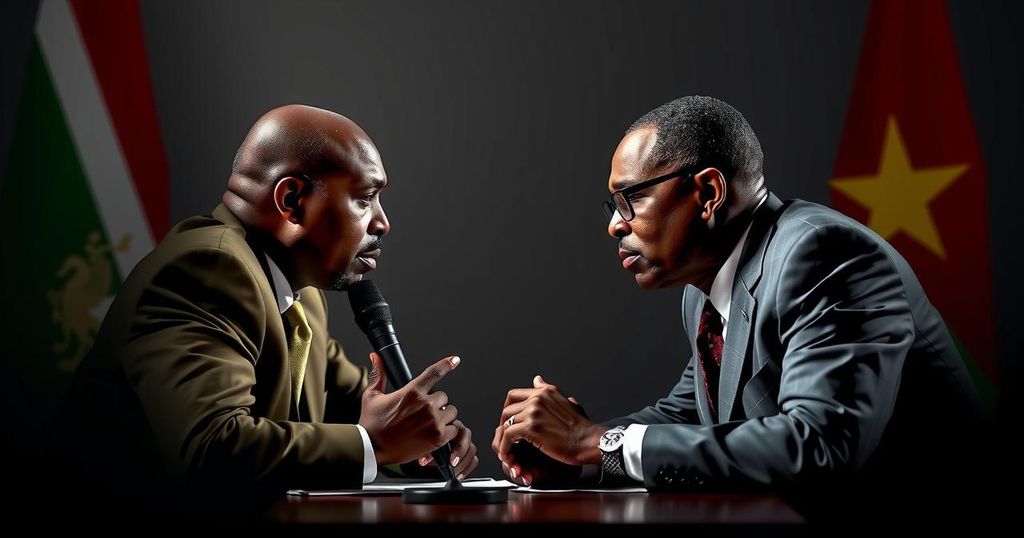South Sudan President Salva Kiir affirmed commitment to the Tumaini peace negotiations, clarifying that these talks aim to include hold-out groups within the existing peace framework, not replace it. He announced a restructuring of the delegation to expedite negotiations. The UN representative urged urgent action towards fulfilling peace agreement commitments amidst ongoing humanitarian crises in the country.
President Salva Kiir Mayardit of South Sudan has reaffirmed the nation’s commitment to advancing the Tumaini peace negotiations intended for the hold-out groups in Nairobi, Kenya. He emphasized that these talks will not replace or undermine the existing Revitalized Peace Agreement. At the eighth annual Governor’s Forum held in Juba, the President articulated the goal of these negotiations as fostering understanding and accommodating the concerns of non-signatory groups within the existing peace framework. He posited that any alternative agreement could undermine inclusivity and potentially reignite conflict.
The restructuring of the government delegation for these discussions aims to expedite and finalize the negotiations. United Nations Special Representative Nicholas Haysom deemed the recent decision to prolong the transitional period by two years as regrettable yet necessary due to stalled progress on essential deliverables. He called for a structured and actionable work plan for the forthcoming period, urging all stakeholders in South Sudan to prioritize fulfilling their commitments.
President Kiir further highlighted that the extension is motivated by a concerted effort to achieve sustainable peace and set the focus on the elections scheduled for December 2026, urging political aspirants to prepare adequately. The deep desire among South Sudanese for a transition towards peacebuilding was reiterated by Mr. Haysom, who stressed the importance of addressing the root causes of conflict through effective governance and delivery of basic services.
Given the current challenges confronting the nation, including widespread humanitarian needs and severe food insecurity, Deputy Special Representative Anita Kiki Gbeho underscored the need for unhindered access for humanitarian organizations. She urged leaders at all levels to facilitate operations that can deliver impactful aid to those in dire need, thereby supporting overall stability in the country.
The Tumaini negotiations are part of efforts to address the lingering issues of conflict in South Sudan, particularly concerning groups that have not signed the previous peace agreements. Following years of civil unrest and humanitarian crises, the government is attempting to consolidate peace and political stability. The commitments made by various leaders during forums and discussions are crucial in steering the country towards a more collaborative future and effective governance practices. The socio-political landscape remains challenging, necessitating focused efforts to address humanitarian needs and implement peace agreements effectively.
In conclusion, President Salva Kiir’s reaffirmation of South Sudan’s intentions in the Tumaini negotiations signifies a commitment to inclusivity and the pursuit of lasting peace. The extension of the transitional period reflects the complex challenges facing the nation but also presents an opportunity for meaningful political processes leading up to the planned elections. The cooperation of all stakeholders in enhancing humanitarian access and addressing fundamental social needs will be essential for navigating the path towards stability and recovery.
Original Source: www.socialnews.xyz






